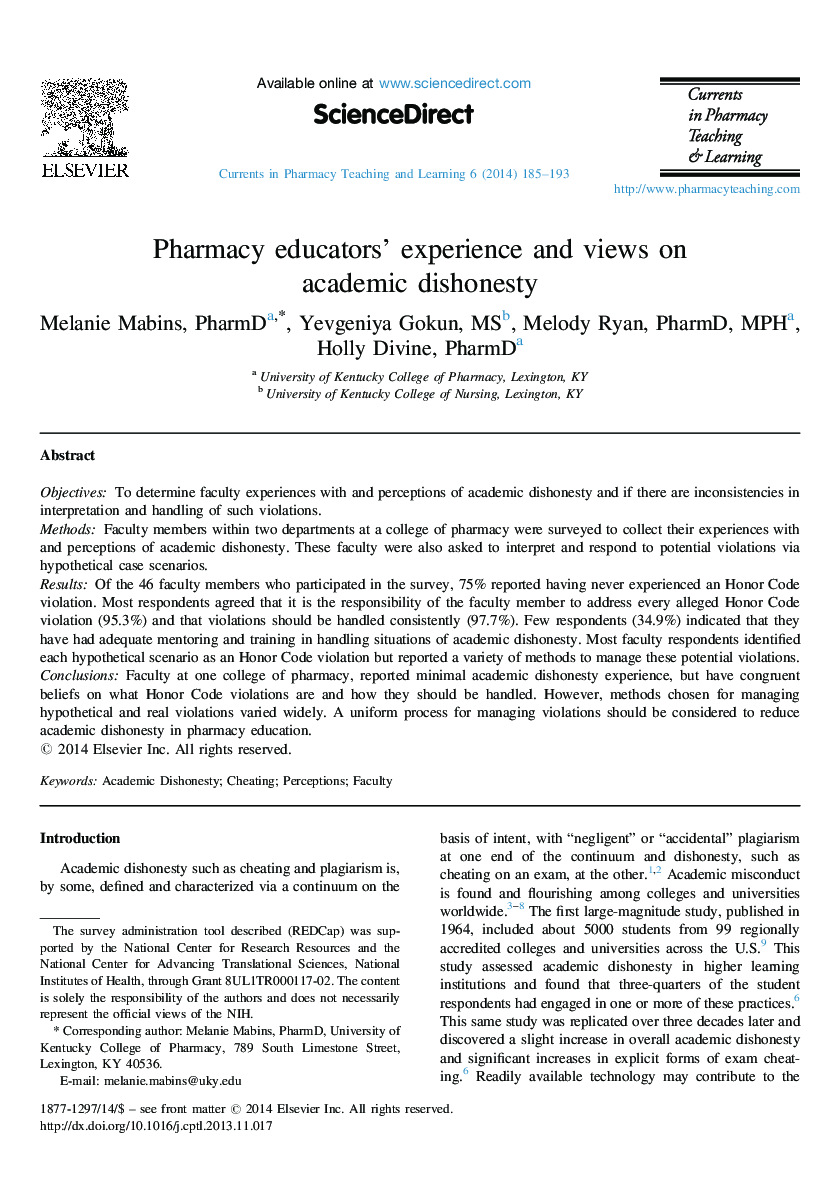| Article ID | Journal | Published Year | Pages | File Type |
|---|---|---|---|---|
| 353035 | Currents in Pharmacy Teaching and Learning | 2014 | 9 Pages |
ObjectivesTo determine faculty experiences with and perceptions of academic dishonesty and if there are inconsistencies in interpretation and handling of such violations.MethodsFaculty members within two departments at a college of pharmacy were surveyed to collect their experiences with and perceptions of academic dishonesty. These faculty were also asked to interpret and respond to potential violations via hypothetical case scenarios.ResultsOf the 46 faculty members who participated in the survey, 75% reported having never experienced an Honor Code violation. Most respondents agreed that it is the responsibility of the faculty member to address every alleged Honor Code violation (95.3%) and that violations should be handled consistently (97.7%). Few respondents (34.9%) indicated that they have had adequate mentoring and training in handling situations of academic dishonesty. Most faculty respondents identified each hypothetical scenario as an Honor Code violation but reported a variety of methods to manage these potential violations.ConclusionsFaculty at one college of pharmacy, reported minimal academic dishonesty experience, but have congruent beliefs on what Honor Code violations are and how they should be handled. However, methods chosen for managing hypothetical and real violations varied widely. A uniform process for managing violations should be considered to reduce academic dishonesty in pharmacy education.
